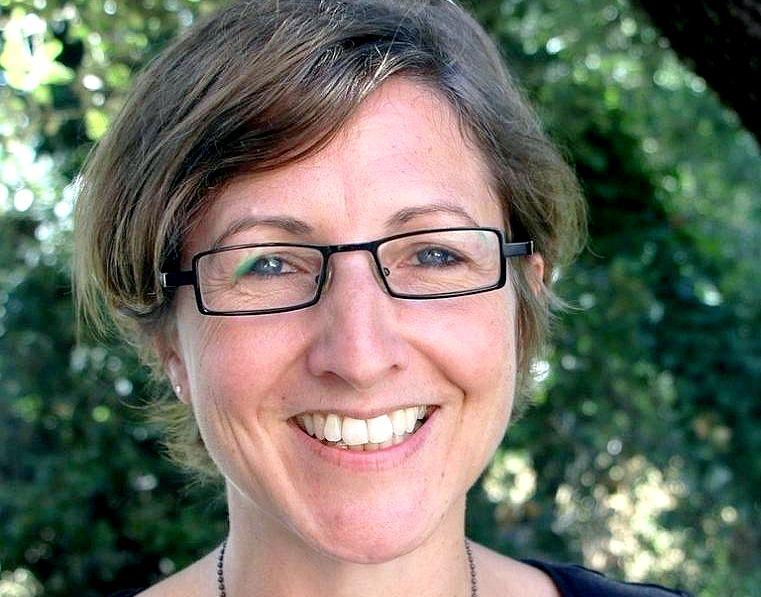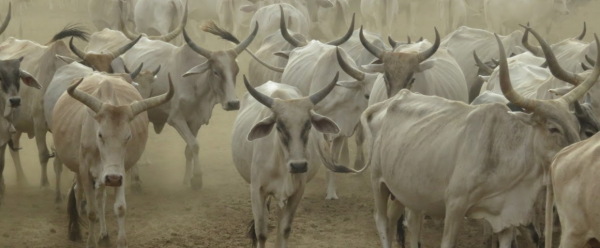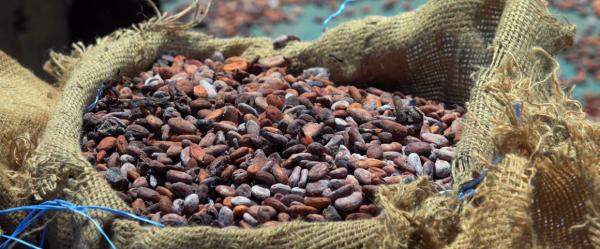Expert view 23 January 2026
- Home
- CIRAD news
- News
- M. Peyre: another crisis unless we work to prevent emerging diseases
Marisa Peyre: "We'll see another crisis in five to ten years' time unless we work to prevent emerging diseases"

The current pandemic management strategy is proving to be a flop. Why is that?
Marisa Peyre: It is primarily western countries that have failed to manage the Covid-19 crisis. A lot of countries in Asia and Africa have done much better. This is probably because they are often faced with epidemics, whereas countries in the global North have all but forgotten what infectious diseases look like. This failure is largely linked to the fact that we do not start managing crises until after diseases emerge, yet prevention would work out 100 times cheaper than controlling subsequent pandemics.
It is vital that we draw lessons from the current pandemic, because the risk of emergence will not be any smaller once we are over the Covid-19 crisis. The number of zoonoses is on the up, as is the frequency of transmission between species, which triggers new diseases.
So you think we need to invest in preventing epidemics?
M.P.: Surveillance is our first line of defence against new pathogens. We must work ahead of future health crises, in association with frontline stakeholders at the interface with wild and domestic animals (farmers, hunters, etc). At CIRAD, we have been studying these issues for more than fifteen years, but our approach is unusual. The vast majority of funding goes to active detection of pathogens rather than to their surveillance. And that is not the same thing.
Surveillance means constantly collating and analysing health data or other direct and indirect indicators to inform those people who are qualified to make decisions and take action. Epidemiological surveys to detect pathogens are one-offs. They are important, but not enough to prevent emergence, because by definition, we do not know anything about the diseases concerned. I am still hearing too many specialists who want to improve testing and diagnostic tools in response to emerging risks. Such tools are obviously necessary, but far from enough. Without early, at-source surveillance and warning systems, I'm willing to bet that we'll see another crisis in future, in five or ten years' time.
How can we stop new diseases appearing and spreading?
M.P.: Preventing epidemics relies on two types of action: anticipating and preventing the risks of emergence on the one hand, and detecting pathogens and taking swift action on the other. Collaboration between the animal, human and environmental health sectors is vital. This is what is at stake in the One Health approach. Emerging risks need to be understood better and the steps required to control those risks defined clearly in line with each socioeconomic context, in association with the people who will be implementing them on the ground. In each country and region worldwide, this means strong local partnerships between decision-makers, health authorities, scientists and communities in contact with wild and domestic animals. Local, regional and global early detection systems must be strengthened and built up, using innovative, participatory approaches. There are not currently any international initiatives addressing all these issues and including biodiversity conservation. This overall approach is the point of PREZODE.
CIRAD has been behind a range of major surveillance networks over the past fifteen years. That sort of expertise is rare…
M.P.: Yes. Several regional networks initiated by CIRAD and centring on the One Health approach have already proved their capacity to stop animal diseases entering a given territory limit or to control them. For instance, the CaribVET network, led from Guadeloupe, has set up an early warning system for avian influenza and strengthened border controls. These steps prevented the disease entering the Caribbean in 2016. In the Indian Ocean, the One Health OI network helped control two epizootics - foot-and-mouth in Rodrigues-Mauritius and Rift Valley fever in Mayotte - in 2019. Those two networks have more than fifteen years' experience. They have done a massive amount of work to coordinate and build confidence between players to ensure efficient information sharing.
Two other platforms in partnership for research and training (dPs) are contributing to integrated health operations on a regional level: GREASE in Southeast Asia and RP-PCP in southern Africa. They encompass long-term R&D operations and partnerships on issues such as emergence or interactions between wildlife and domestic animals. They have enabled an understanding of the socioeconomic constraints and issues for surveillance stakeholders on a day-to-day basis and of the importance of participatory co-construction, and have thus helped improve the management of animal and zoonotic diseases such as avian influenza in Vietnam
What have we drawn from this?
M.P.: A good deal of knowledge, particularly that there are certain vital preconditions if such networks are to be efficient, responsive and long-lasting. The first is that they must be co-constructed with the partners that will have to put them into practice. Involving them in building a network is the only way of ensuring that those partners find it relevant and take it on board. Protocols must be defined and implemented via a bottom-up rather than a top-down approach. The aim is to strengthen the chain of dialogue between private and public players that is the very essence of surveillance networks. This means taking account of the constraints and needs of every stakeholder. Public-private partnerships and constant science-society-policy dialogue are essential for effective surveillance strategies and health policies in a more global sense.
It is also crucial for these networks to be strengthened on four levels: local, national, regional and global. PREZODE will link and coordinate those various levels in real time.
Lastly, it is important to be clear about the paradox of health prevention, because in this field, it is the absence of disease that proves its success. It is vital to ensure that the authorities do not stop funding surveillance networks on the grounds that there are no more diseases.
PREZODE will be an action research programme. What does that mean?
M.P.: Several research operations will be conducted alongside strengthening prevention and surveillance networks. Participatory construction is an iterative process combining understanding the issues and socioeconomic constraints, involving stakeholders and implementing solutions identified collectively. It means putting research results into practice extremely rapidly.
PREZODE, a global initiative to prevent the next pandemicUnder the aegis of France and Germany, PREZODE, an initiative to prevent emerging zoonotic risks and pandemics, was announced on the occasion of the One Planet Summit on 11 January. Three French research institutes – CIRAD, INRAE and IRD – have teamed up with around ten other research bodies* in France, Germany and the Netherlands to launch PREZODE, which has already mobilized more than 1000 researchers and stakeholders on the ground. This global programme, combining research and operational activities, was shared in December 2020 with more than 400 participants from 50 countries on five continents. International organizations such as WHO, OIE, FAO, UNEP**, the World Bank and the European Commission have all expressed a keen interest in the initiative. * In France, notably with ANSES, the Institut Pasteur, INSERM, CNRS and CNES; in Germany with Helmholtz, the Friedrich Loeffler Institute and the Charité Institute of Virology; and in the Netherlands with Wageningen University and Research. ** WHO: World Health Organization; OIE: World Organization for Animal Health; FAO: Food and Agriculture Organization; UNEP: United Nations Environment Programme. |



























